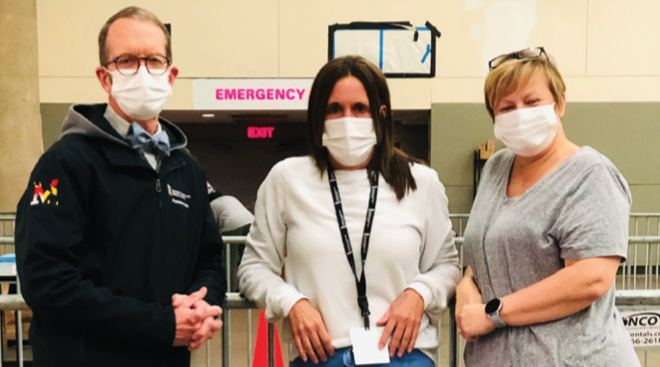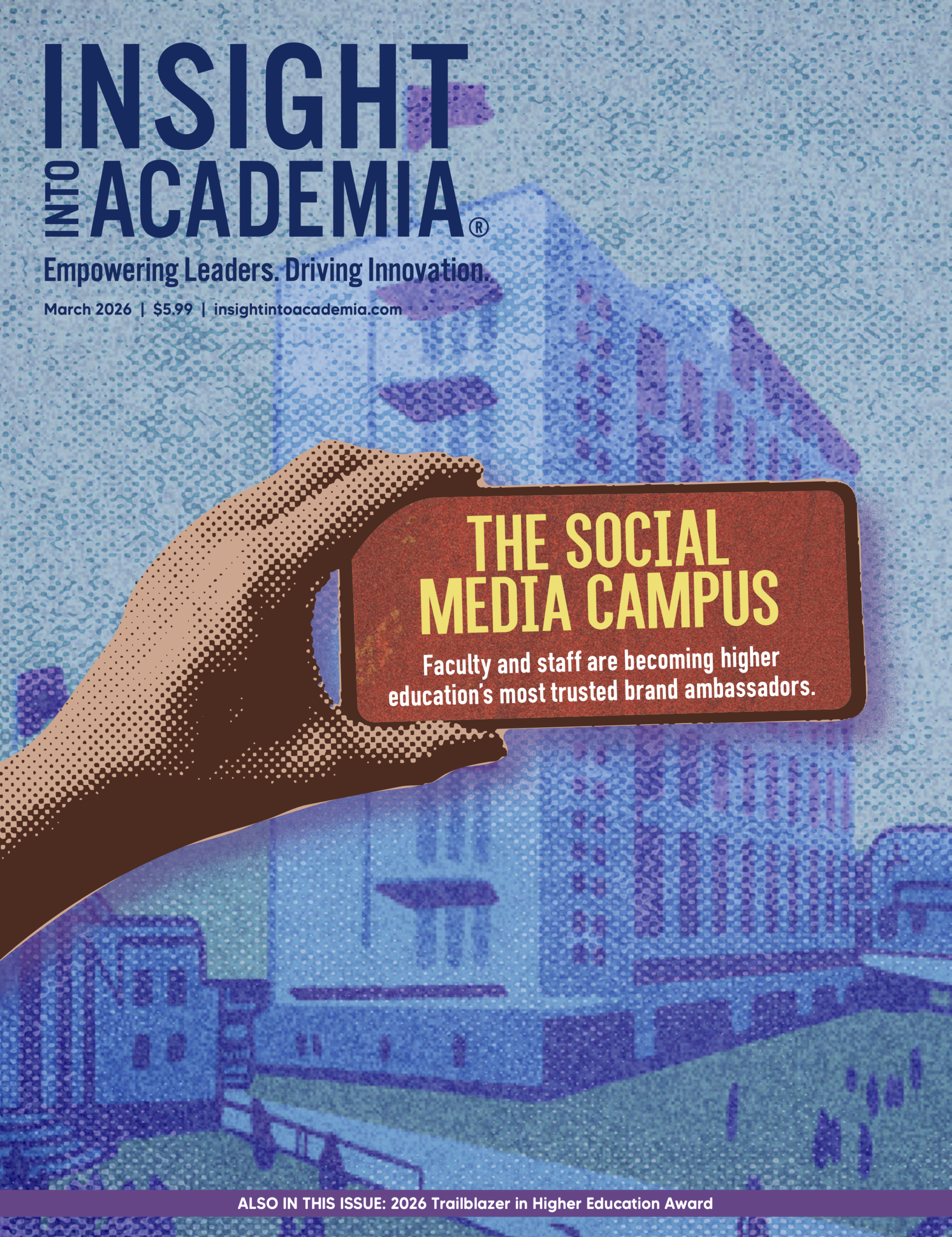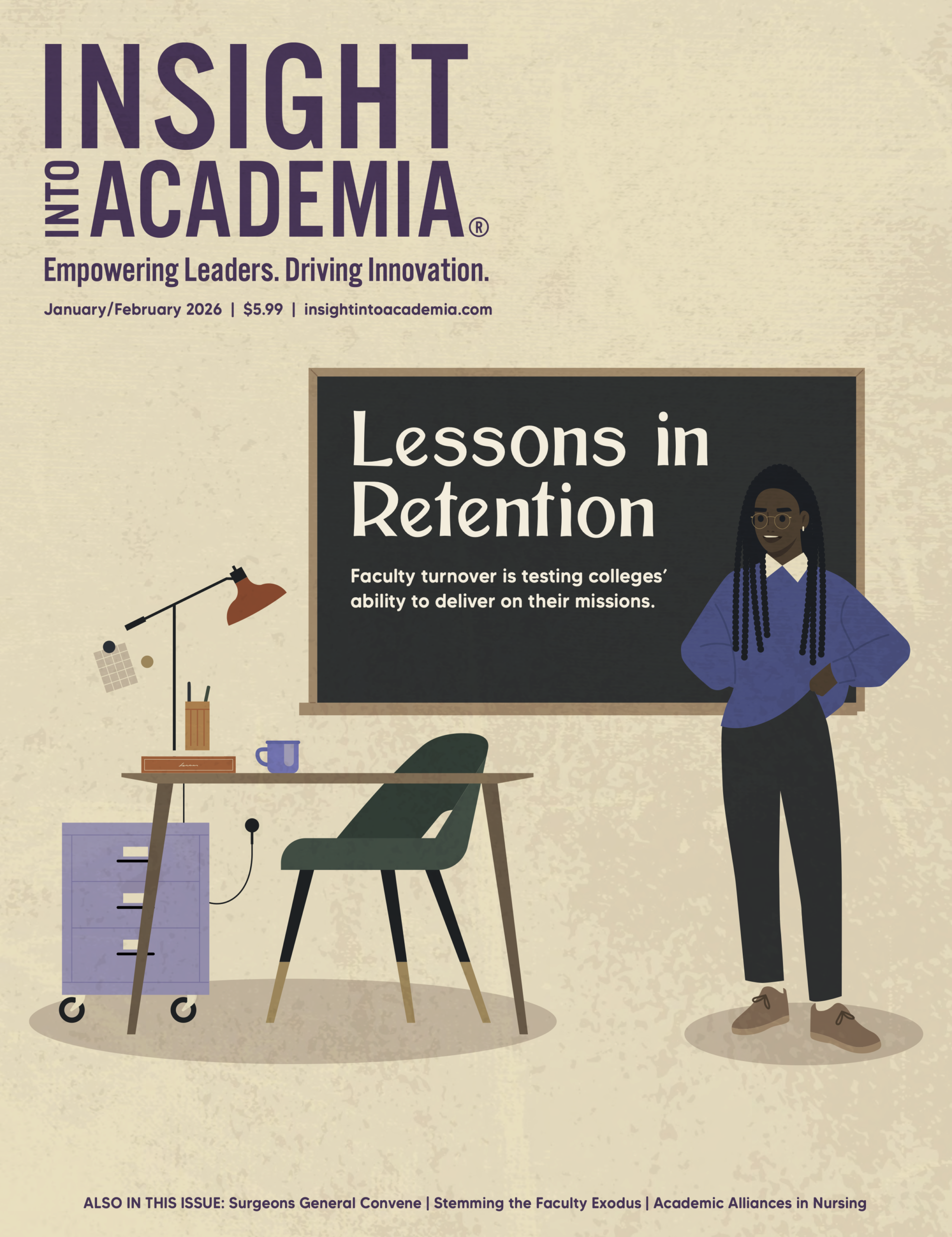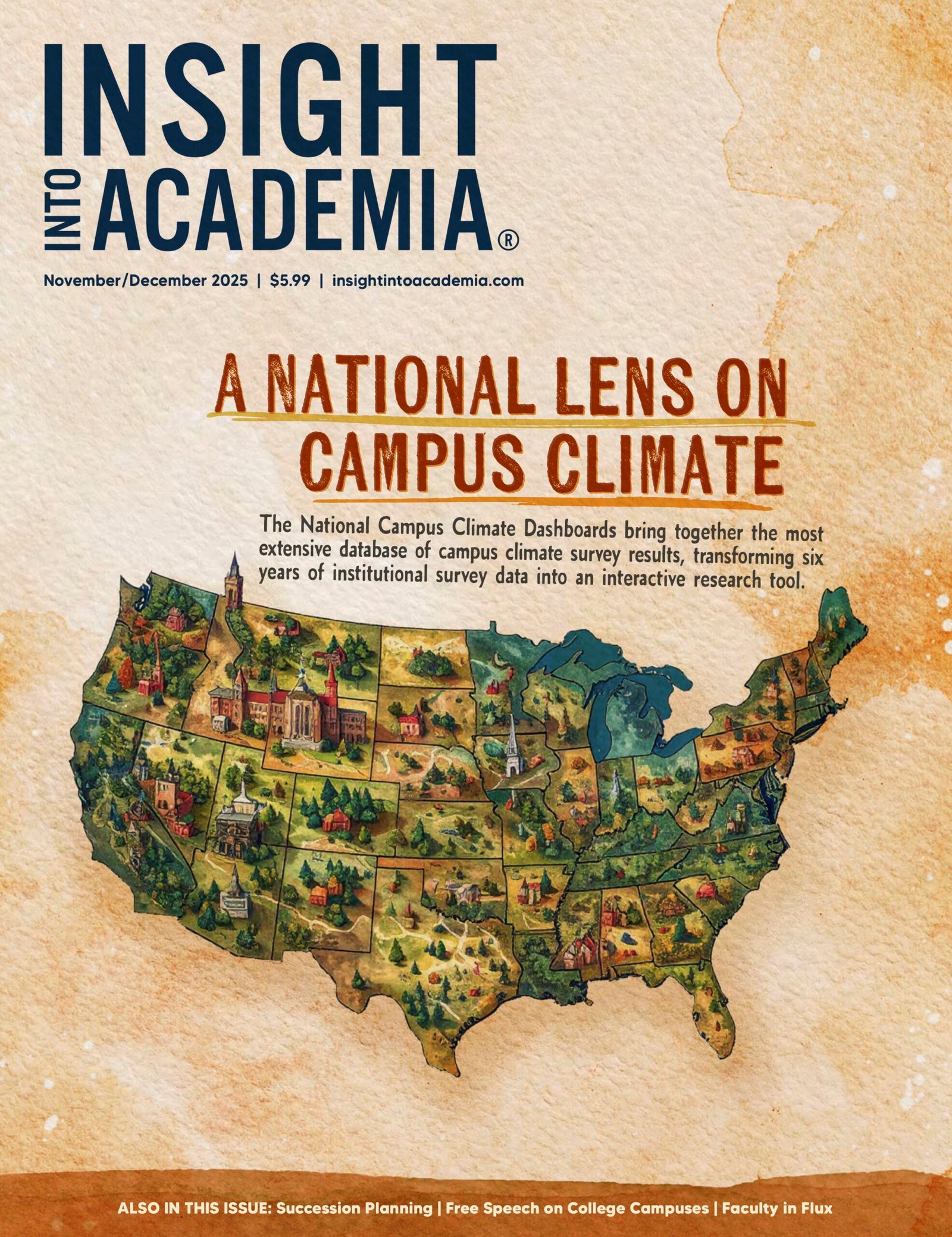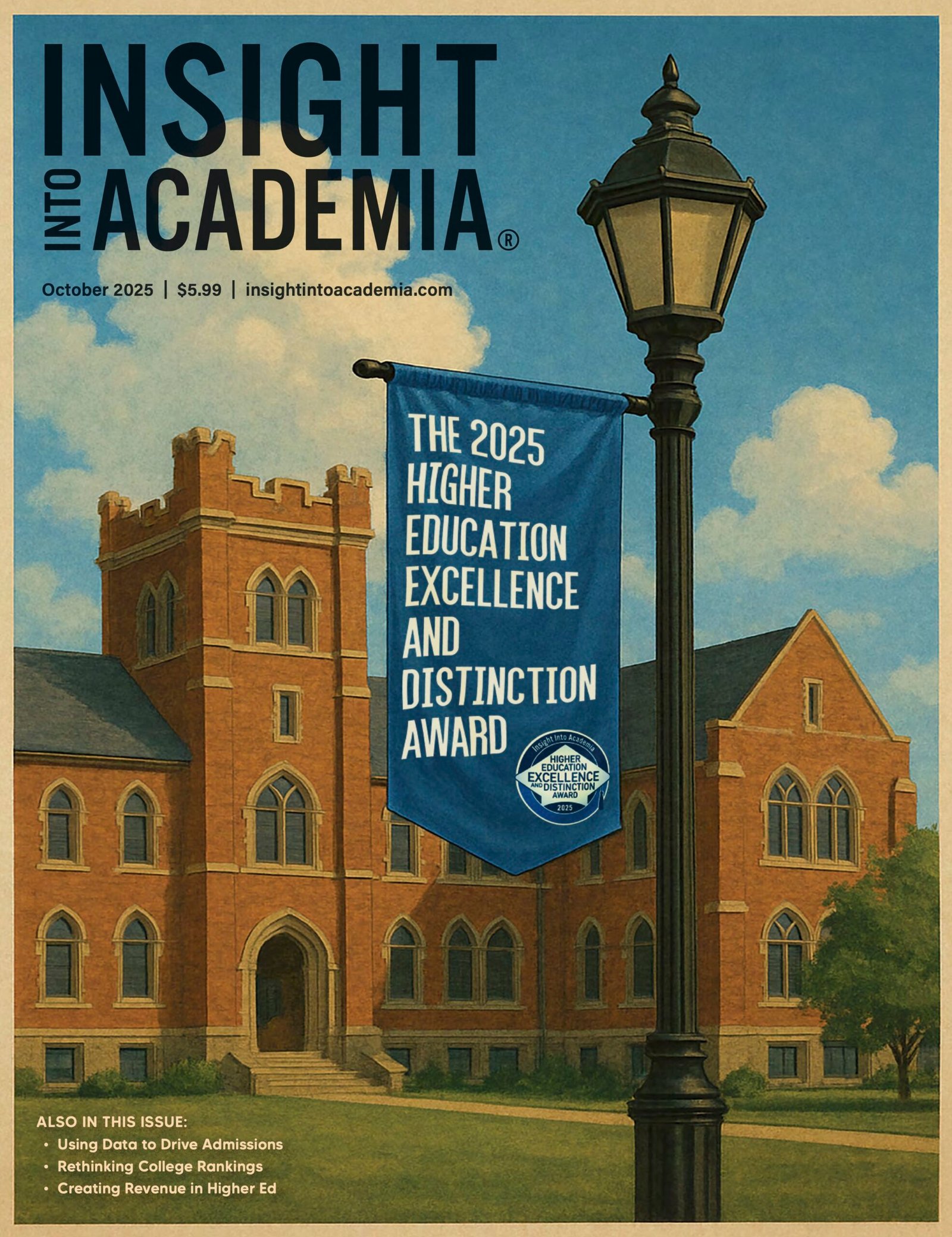Early on in the COVID-19 pandemic, a number of state legislatures, colleges and universities, and state nursing boards allowed high-performing nursing students to graduate early to bolster the overburdened health care workforce — effectively enabling student nurses to begin their careers during one of the greatest public health crises in history.
Though the rules differed by state, those that offered nursing students this option generally required a high grade point average and proven competency in clinical settings. Among the institutions that permitted early graduation were the University Maryland School of Nursing (UMSON) and the University of Maine School of Nursing (UMaine Nursing).
Under normal circumstances, transitioning from nursing school to a professional setting is an intimidating and stressful experience. That challenge has been significantly magnified for many new nurses due to shortages in supplies and staff, less time for training, and ever-changing rules and procedures.
INSIGHT recently spoke with four nurses who made the decision to graduate early last spring in order to join the fight against COVID-19. Each has faced different challenges that exhibit the hardships health care workers have encountered during this crisis — including increased workloads, limited time to care for people in need, and the struggle to connect with new colleagues and patients during a period of intense stress. Each has also discovered the unique rewards of nursing that drew them to the field and motivated them to sign up early to be on the front lines of COVID-19.
On the Front Lines
After graduating from UMSON in mid-April, Debbie Sahlin went to work at the Baltimore Convention Center Field Hospital, which was created by the National Guard to handle the overflow of COVID-19 patients and to administer coronavirus tests.
Despite knowing that this chaotic setting would undoubtedly be a challenging introduction to the nursing profession, Sahlin says she felt a calling to work in the field hospital.
“It was just one of those things where you have a feeling,” she says. “My rationale was that it’s what I’m trained to do. I just went to school and spent all this time and energy to learn, maybe I better go try this out.”
One challenge of the job is struggling to keep up with the high demand for COVID-19 testing. Sahlin recalls one particularly demanding July day in which she and her team conducted more than 1,500 tests within the span of four hours — all while dressed in full personal protective equipment (PPE) in the summer heat.
Still, she says that choosing to leave school early to work on the front lines was a positive career move because it gave her confidence in her abilities as a medical professional. All new nurses feel a bit uncertain when first starting out on the job, she says. Even if they are armed with an abundance of medical knowledge, it can be intimidating to know what to do in any given situation.— but in a COVID-19 field hospital, there is no time to second guess oneself. “Really, [working in the field hospital] was the best thing I could have ever done, because it gave me that confidence. You don’t have a choice, you just do it,” she says.
Sahlin credits UMSON for giving her the necessary knowledge and skills to care for her patients, but she says that her own personal hardships have given her the resilience to work in such an intense environment. She went to nursing school as a nontraditional student after learning to care for her son after he suffered a traumatic brain injury. Now, while continuing to work full-time, she is taking classes in pursuit of a doctoral degree.
Though Sahlin says she was initially worried about potentially contracting COVID-19 from a patient and passing it on to her son, she now feels safer in the hospital, where PPE is readily available and everyone takes precautions, than she does in going to the grocery store. “It’s not even an issue that I think about, getting COVID-19 from work,” she says. “I think about getting it from somebody else who’s not protected.”
Overall, working during the pandemic has been a positive experience. For one, a majority of Sahlin’s patients have been incredibly kind and grateful, she says. She also knows that her team is making a huge difference.
“It’s just the best feeling,” says Sahlin. “People are going to ask me 10 years from now, ‘What did you do during the pandemic?’ And I’ll be able to say, ‘Oh, I worked at a field hospital.’ That’s kind of cool.”
Intensive Care
Nicole Chasse went to work at Northern Light Eastern Maine Medical Center (Northern Light) in Bangor, Maine in June after graduating early from UMaine Nursing. She was in the hospital’s intensive care unit but was recently transferred to the COVID-19 ward.

Fortunately for Chasse, the ward is extremely team-oriented, she says. “When you get thrown into something like that, you just kind of have to step up to the challenge and do as much as you can as well as you can. It was definitely overwhelming, but I felt as if I was really welcomed and supported,” she explains.
Since so many resources have been allocated to the COVID-19 unit, Chasse says there have been plenty of supplies and staff. However, one of the most challenging aspects of regularly working with coronavirus patients has been the loneliness that many patients experience while being treated.
“It’s definitely humbling and scary,” Chasse says. “You see people of all ages, and it’s so hard not being able to allow them to have family members present because that is so crucial to care in general. It’s a much different style of nursing.”
Another unique challenge for graduates who left school in the early stages of the pandemic is that so little was known about the virus initially. Chasse was not able to fully prepare for or understand how COVID-19 affected patients before she landed in the job. “We had the best of the best,” she says, referring to her training at UMaine Nursing, “but I don’t think any program can really prepare you for what you’re going to see.”
Still, Chasse says that graduating early was the right decision. As someone who grew up in the Bangor region, she says it’s rewarding to care for patients who she may already know and to be able to see the positive impact she’s having on the local community.
Staffing Shortages
Nicole Brown and Sierra Austin also graduated early from UMaine Nursing last spring and went to work at Northern Light to help make up for staffing shortages caused by the pandemic. Though they do not directly treat COVID-19 patients, each is helping to fight the battle by alleviating the overburdened health care workforce.
Brown works in cardiac care and says that orientation to the job has been somewhat tenuous because of limited staff. She was accepted into the hospital’s nursing residency program, which helps recent graduates acclimate to the hospital environment. Generally, those accepted into the program would meet with doctors and surgeons in person, but those meetings have been moved online.
“It’s been overwhelming. Normally, there is more staff available to help with the transition to becoming an actual nurse,” Brown says.
Other significant challenges include a strain on time and resources. Supplies for Brown’s unit are sometimes backordered because coronavirus patients and the intensive care unit have first priority. “That has been the biggest change on my floor that I’ve seen. Our resources are so slim that we’re kind of having to pick and choose who gets what and which patients need stuff more,” she says.
Northern Light implemented a tier program that allocates resources to different areas of the hospital depending on the number of active COVID-19 cases. Because of a recent spike in infections in Maine, the hospital is currently at tier four. If infection rates continue to rise the cardiac floor where Brown works will have to begin accepting coronavirus patients, she explains.
Although Brown and other staff members are tested for COVID-19 symptoms daily, her biggest fear is contracting the virus and spreading it to her cardiac patients, many of whom are elderly. She must also contend with having as many as six patients under her care at any given time due to staffing shortages. It can be hard to decompress from these worries, says Brown, but she realizes that being a medical professional — especially in times of extreme crisis — necessitates having the strength to do the job despite the emotional strain. Her passion for nursing and health care is what keeps her going.
“I went into nursing because I care so much about people and their health,” she says. “So it’s hard to just kind of say, ‘Okay, I’m just going to forget about my patient that I just spent two hours with and found out she had a brain tumor.’ I went through all of these emotions with her. To let that go is really difficult, but I think you have to kind of force yourself to do it.”
Sierra Austin agrees that the pandemic has made it more difficult to build relationships with patients and their families, and that this feels like a missing piece of being a nurse. She has worked in neurology and orthopedic medicine at Northern Light since she completed orientation in August.
Another difficult aspect is that it is much harder to make connections with coworkers. Since everyone’s face is covered and they are much busier than normal, it is challenging to communicate and foster those relationships, Austin explains.
“I don’t have any family in Maine, so I was kind of looking forward to that work family,” she says. “But you really don’t get to have that as much.”
Yet working at a hospital during a global pandemic has mostly been a positive way to start her nursing career, says Austin. She is considering going to graduate school to become a nurse educator in the future and sees the COVID-19 crisis as a perfect lesson in the continuously changing nature of the discipline.
“Nursing is one of those things where you are constantly learning and you’re never going to know everything,” she says. “This is a perfect example of that. Just being in an environment like this is a good example to teach to future generations.”
Erik Cliburn is a senior staff writer for INSIGHT Into Diversity.


